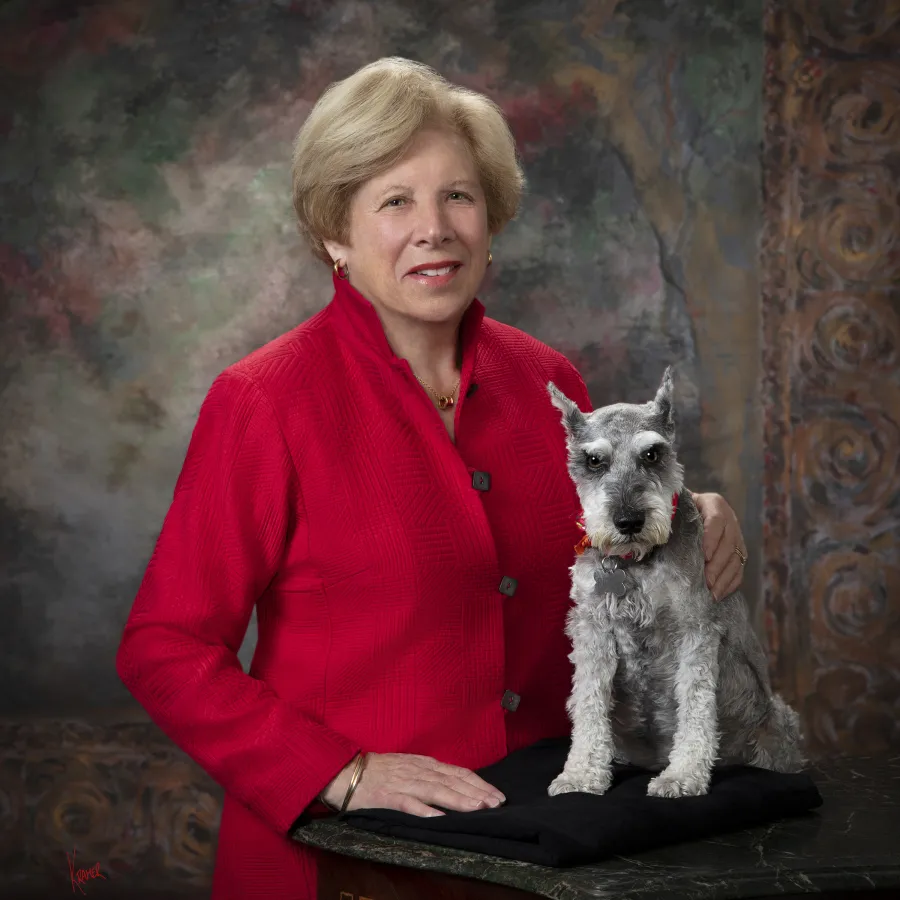‘Progress Is Not Always Linear’
News of Note
Historian Nancy Weiss Malkiel ’65 will receive the Smith Medal on Rally Day, Feb. 20
Published February 12, 2025
In 1969, Nancy Weiss Malkiel ’65 became the first woman to join the faculty of Princeton University’s history department. She then went on to serve for a record 24 years as dean of the undergraduate college there.
Currently professor of history, emeritus, at Princeton, Malkiel is a noted historian, whose scholarship has focused on modern U.S. race relations, civil rights, and higher education. Among her numerous books and articles are The National Urban League, 1910–1940 (Oxford University Press, 1974), Whitney M. Young, Jr., and the Struggle for Civil Rights (Princeton University Press, 1989), and “Keep the Damned Women Out”: The Struggle for Coeducation (Princeton University Press, 2016), a comprehensive study of the movement by elite colleges and universities in the United States and the United Kingdom to go coed in the late 1960s and early 1970s.
Malkiel served for more than 40 years on the board of the Woodrow Wilson National Fellowship Foundation, which she chaired for a decade, and was a trustee of Smith College from 1984 to 1994. In 1997, Smith awarded Malkiel an honorary doctor of laws degree.
Here, Malkiel shares her thoughts on lessons she learned at Smith, the value of women’s colleges, and her reaction to receiving the Smith Medal.
What is your proudest accomplishment?
“I appreciate that I could say that I made a real difference to undergraduate education in 24 years as dean of the college at Princeton, or that I made a real difference to generations of individual students in nearly a half century of teaching at Princeton—and that is certainly true. But I am going to make a less conventional choice here and single out a loving, relatively late-in-life marriage with my extraordinary husband.”
What Smith lesson continues to impact your life today?
“As editor in chief of The Sophian, I had the privilege of sitting in weekly news meetings with President Thomas Mendenhall, the deans, and other senior administrators. I learned so much about how higher education functions—lessons that had a profound impact both on my instinct to participate in departmental and university affairs and on my career as a university administrator at Princeton.”
What advice do you have for seniors graduating this year?
“Remember that you will have multiple careers over the course of your working life. You do not need to choose now what you will do [for the rest of your life]; you just need to choose a credible way to get started.”
Do you have any special memories of Rally Day at Smith?
“My most vivid memories of Rally Day come from the year when President Mary Maples Dunn asked me as a trustee of the college to substitute for the scheduled Rally Day speaker, who canceled at the last minute. I was delighted by the opportunity. I remember so well the academic procession; the singing of ‘Gaudeamus Igitur’; the electric energy and excitement in John M. Greene; the imaginative hats fashioned by the students. My talk, ‘Growing up with a Smith Education,’ gave me a chance to reflect on what I had learned at Smith, in the context of what successive presidents and faculties had in mind in crafting a Smith education.”
What does being honored with the Smith Medal mean to you?
“I’ve devoted my life to liberal arts education, and have lived my life in the context of the liberal arts, so this recognition is especially meaningful to me, and having my college honor me is extremely moving.”
Rally Day is a celebration of the many ways Smithies have changed the world. What do you see as major issues today that you would like to see Smithies tackle?
“Everything wrong with the world—and there is so much—could benefit from the wisdom, energy, and expertise of Smith women.”
Why is it critical to support Smith philanthropically?
“To make it possible for future generations of students to benefit from the precious educational opportunities alums have enjoyed for so many decades.”
How do women’s colleges fit in today’s higher education landscape?
“I’ve devoted my working life to a coeducational university, but I believe firmly in the value of women’s colleges as an alternative in the array of opportunities available to women seeking to pursue higher education. Women’s colleges make women the number one priority of the faculty. They enable women to try out fields not traditionally seen as friendly to women. They produce leaders. They help women appreciate the friendship, colleagueship, and talents of other women.”
You began your career when women were breaking a lot of barriers. Are you hopeful or discouraged in 2025?
“Hopeful—definitely, hopeful. We have a long way to go. But we have made notable progress over the last half century or so, and I am confident that further progress will be possible. It’s important to remember that progress is not always linear. A step or two backward need not signal defeat. It just means that it is necessary to regroup and try a different approach.”
